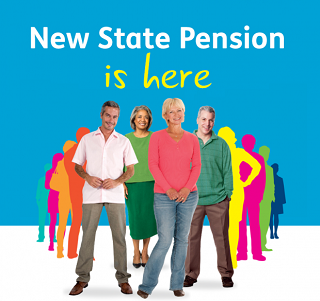 Is starting up a new business just for young people? As more people start up a business or become self-employed later in life, this is the age of the ‘olderpreneur’.
Is starting up a new business just for young people? As more people start up a business or become self-employed later in life, this is the age of the ‘olderpreneur’.
In the next decade the number of people aged 50 to State Pension age is expected to rise by 3.2 million, while the number aged 16 to 49 will have reduced by 200,000. Whilst this means we can look forward to living longer, we will also need a completely new mind-set for the 21st century that re-thinks what ‘old’ looks like. The traditional stereotypes of people aged over 50 no longer apply.
This will include re-thinking retirement and considering the other options available, including becoming your own boss in later life.
The opportunity to become self-employed or start your own business can be a way of using your wider knowledge, experience and skills whilst continuing to earn money, turning your passions and hobbies into a way of life.
You can also be in control of your workload and have the option of flexible working. For example, you could work part-time or during certain times of the year to fit around your other commitments and hobbies.
Working in later life might not be right for everyone and indeed some people might not want to work at all, but if you do, working for yourself could be an excellent opportunity to use your skills in a flexible way and adapt to any family caring, health or other needs you may have.
New Enterprise Allowance
If you’re thinking about setting up on your own, there may be help and support available.
The New Enterprise Allowance (NEA) can help you to start your own business if you’re receiving certain benefits. The NEA provides mentoring support to develop your business plan and financial support worth up to £1,274 when you start to trade.
Since its launch in 2011, NEA has supported over 80,000 new business starts, and nearly one in four of participants are aged 50 or older.
If you’re not eligible you may still be able to get other help with setting up a business.
 What does the new State Pension mean for the self-employed?
What does the new State Pension mean for the self-employed?
I also wanted to highlight the changes that the new State Pension has brought to people that are self-employed.
The State Pension has changed for those reaching State Pension age on or after 6 April 2016. You can find out more about the new State Pension in my earlier blog.
Under the old rules, the most you could get if you were self-employed throughout your working life and making Class 2 National Insurance (NI) contributions was £119.30 a week (the full amount of the basic State Pension in 2016/17).
Under the new State Pension rules, Class 2 NI contributions made by self-employed people are treated in the same way as employee contributions. Class 2 NI contributions will count towards the new State Pension, including those made before 6 April 2016.
Find out more
You can find out more about help and support for older workers, the New Enterprise Allowance and starting your own business on GOV.UK.
Starting a new business can be incredibly rewarding. You can be your own boss, with financial independence and the flexibility to manage other responsibilities in your life.
Don’t be put off because of your age.